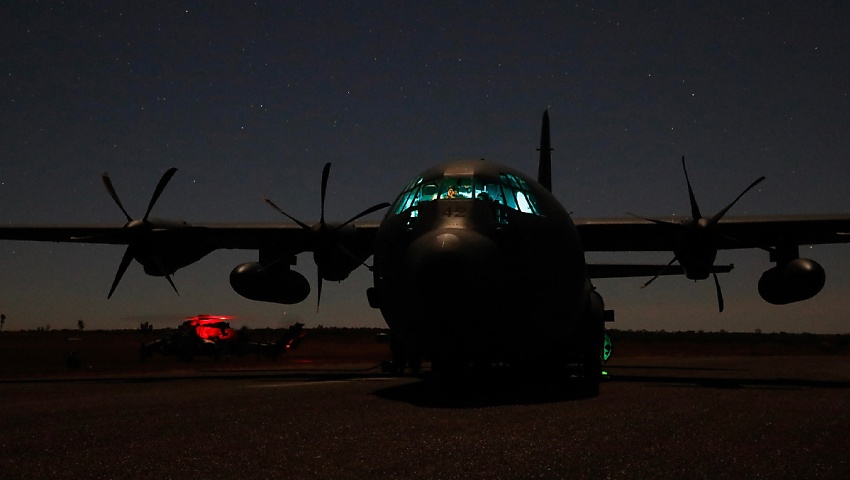Australian tech science and engineering start-up incubator National Space Industry Hub has announced an expansion into defence and aerospace.
To continue reading the rest of this article, please log in.
Create free account to get unlimited news articles and more!
The official expansion into defence and aerospace, delivered by Cicada Innovations and funded by the NSW government, will mark the Australian incubator to offer a comprehensive support system and connections into the space, aerospace, and defence ecosystems
The plan aims to focus on dual-use capabilities and provide a pivotal gateway for start-ups and SMEs entering these sectors.
“NSW has become a magnet for investment in space tech, and its initiatives like the National Space Industry Hub (NSIH) that are empowering entrepreneurs to solve real world problems through space-enabled technologies,” Investment NSW Deputy Secretary Rebecca McPhee said.
“We’re incredibly proud of the hub’s achievements over the last three years, with resident businesses generating more than $72 million in commercial revenue and 160 jobs. The expansion of the hub’s services to defence and aerospace will ensure we can support more businesses to progress cutting-edge technology.
“We can’t wait to host the International Astronautical Congress in Sydney next year – the Olympics of the space industry – where we can showcase the hub’s achievements and demonstrate to the world how NSW and Australia is emerging as a global leader in space.”
The global space industry is predicted to jump to US$1.8 trillion by 2035, but by adding aerospace and defence, the NSIH aims to drive further economic growth and resilience, create new markets and opportunities, solidify Australia’s global technological leadership, and enhance national and regional security via dual-use innovations.
Defence budgets are expanding, with $764.6 billion allocated in the 2024–25 federal budget (predicted to grow to an estimated $100 billion by 2033–34), on top of over $150 million in industry grants delivered over just four years.
The move comes as Cicada Innovations also reveals the significant impact created by the program, with every dollar invested by the NSW government into the program since its inception in 2022 attracting 74 of the 82 NSIH-supported businesses.
Those businesses have collectively raised more than $52 million in private capital, securing $4 million in grant funding, and generating more than $72 million in revenue from more than 200 customers, all while creating 160 high-value jobs.
The NSIH program has also created three successful spin-outs and filed 16 patents across diverse products, while a number of residents and alumni were on the recent Waratah Seed 1 satellite: Deneb Space, Spiral Blue, Contactile, Extraterrestrial Power, EurokaPower, and Mawson Rovers.
“Australia has the capability and frameworks in place to deliver space operations to a global market. The expansion of the National Space Industry Hub into defence and aerospace will also drive innovation across a broad range of future-critical industries like quantum computing, cyber security, AI, autonomous systems, robotics, space technologies, and more,” Cicada Innovations chief executive officer Sally-Ann Williams said.
“These industries are vital to shoring up Australia’s economic resilience, national security, and technological advancement long into the future. They will also help us address the complex challenges posed by global geopolitical dynamics, technological disruption, and the increasing demand for sovereign capabilities.
“We look forward to working with the NSW government to build these strengths and deliver further impact for many more years to come.”
Partnerships like AUKUS are also transforming defence into a mechanism to promote security and stability and boost trade and collaboration, including through free trade licences and the removal of export permits.
Aviation and drone technology are also crucial to Australia’s economic growth and technological leadership, while its vast geography means both are vital for global connectivity and remote operations. However, the industry faces challenges like reducing carbon emissions and rising fuel costs.
By expanding into aerospace, the NSIH will enable start-ups to develop cutting-edge technologies – from sustainable aviation fuels to autonomous drones – that will drive efficiency, safety, and sustainability in both air and unmanned systems.
All of these national and global proof points demonstrate the urgency and national value of expanding the program, according to Cicada Innovations.
Some examples of the start-ups supported by the NSIH include:
- Aquila is unlocking global renewable energy accessibility through specialised solar panels that convert infrared light to electricity – combating global energy poverty, blackouts and bottlenecks on the electricity grid, and an anticipated four-to-five-fold surge in Australia’s energy usage over the coming five years.
- Deneb Space has unlocked a $33.3 billion market opportunity by revolutionising satellite manoeuvring with autonomous technology that boosts efficiency by 100x, giving satellites 5x more rotational force. This innovation enhances agility, collision prevention, and mission success, crucial as the number of satellites in orbit is set to triple by 2030.
- Spiral Blue is advancing satellite imagery by integrating LiDAR and optical sensors to map Earth and beyond in 3D. By processing data directly in orbit, their technology reduces transmission needs, offering faster, actionable insights for sectors like agriculture, defence, and environmental monitoring.

 Login
Login







